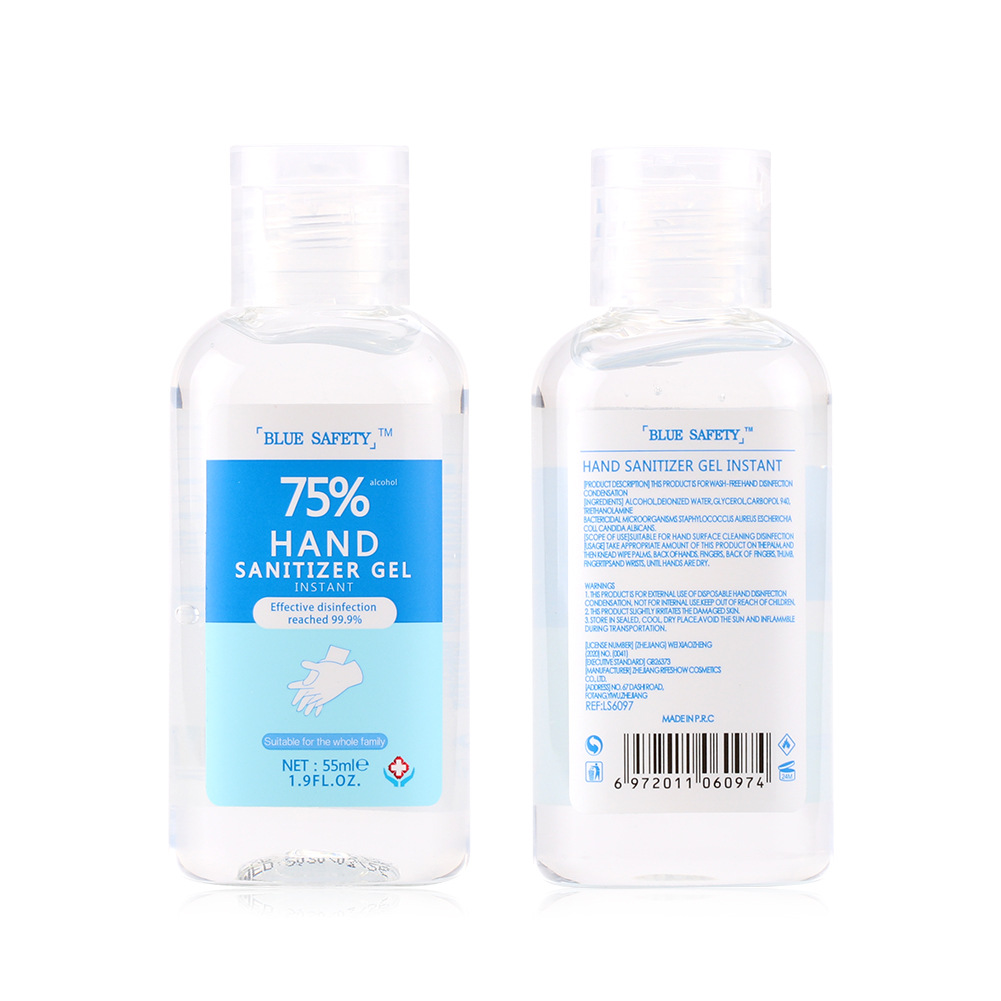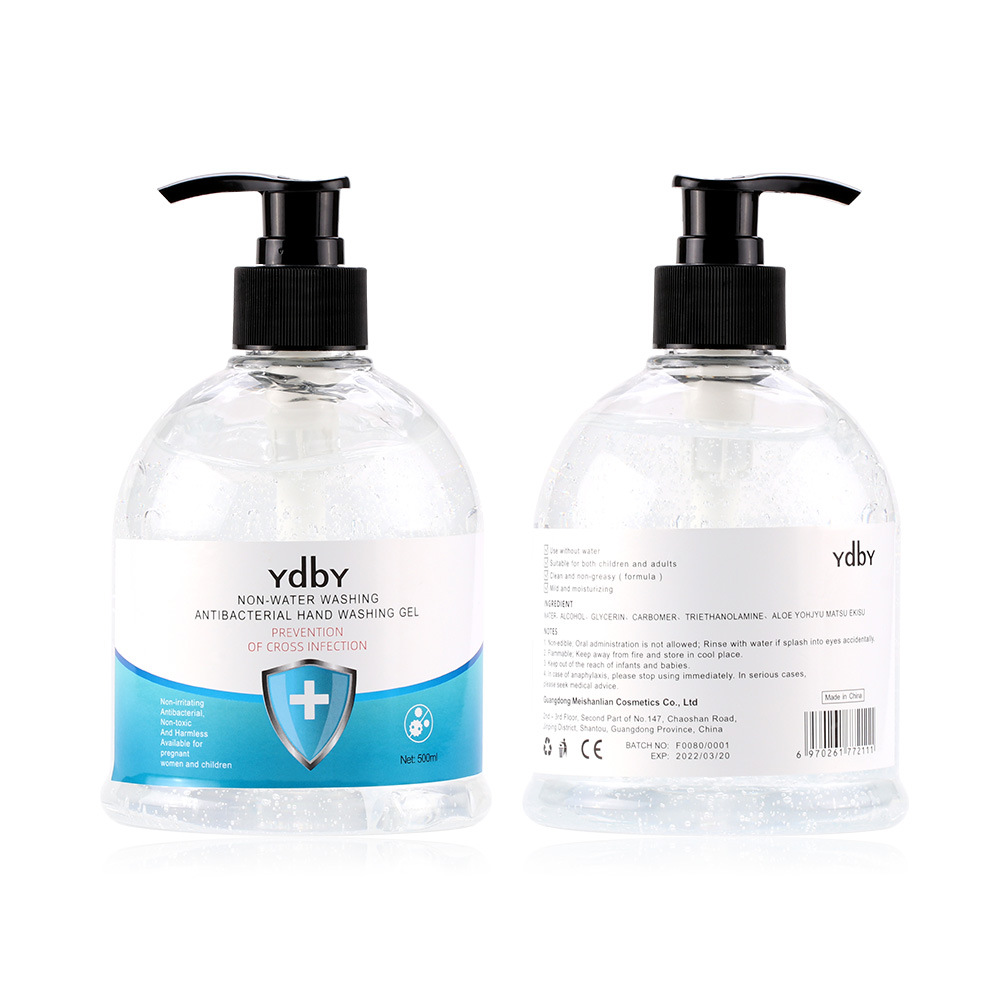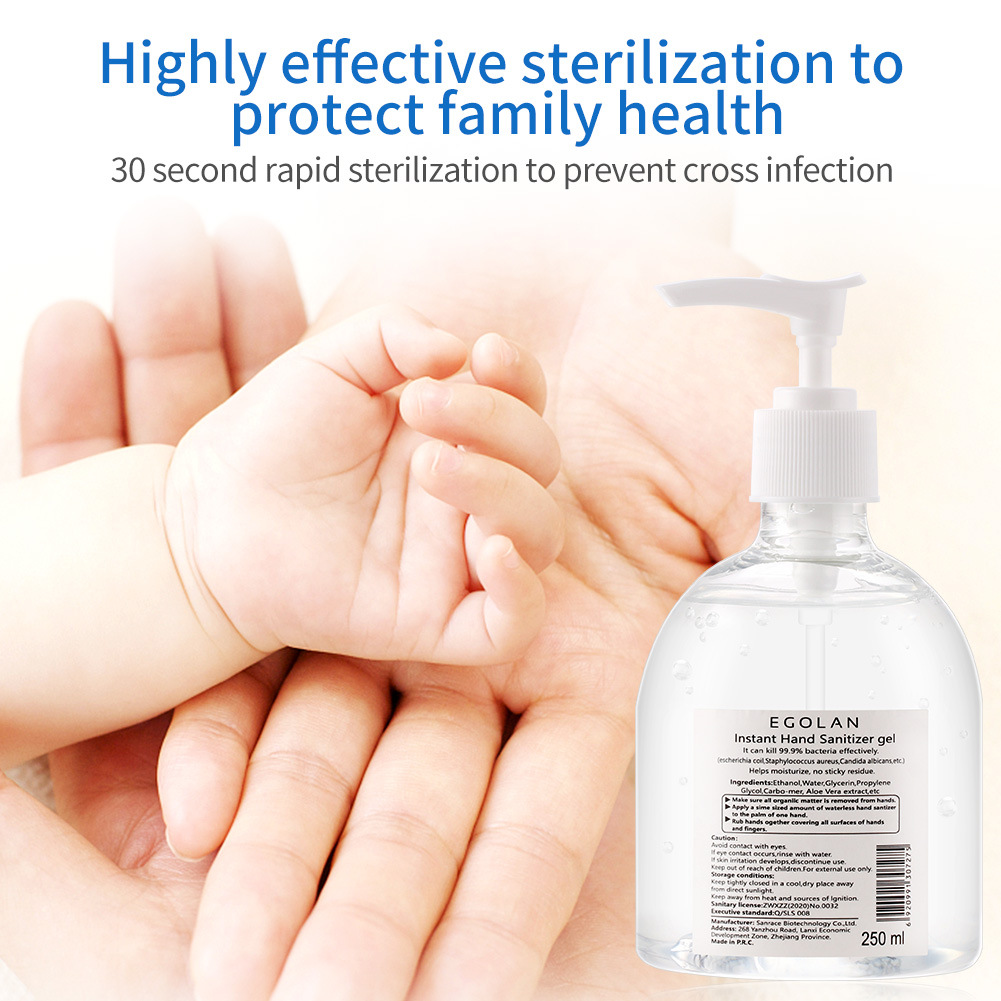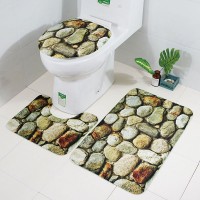Using Hand Sanitizers to Ward Off Infection and Diseases
There has always been a question about the potency of hand sanitizers warding off infections and diseases. Medically, you will only benefit from hand sanitizers if you use them the right way. It is even more important to use them in the right instances.
One thing is sure, hand sanitizers are potent against microbes but aren’t effective on every kind of germ. In this post, we will look at how sanitizers work and factors to consider when buying sanitizers. We will also show you the benefits of using hand sanitizers and how they shouldn’t be used.
What is Hand Sanitizer?
Before we go into the details of this post, it is expedient to quickly define what hand sanitizers are. In simple terms, a hand sanitizer is a gel or liquid that is used for protection against infectious agents. The sanitizers are designed to reduce or eliminate the population pathogens on the hands.
It is important to note that hand sanitizers are not an alternative to hand washing. However, it may suffice when soap and clean water are not available for certain cases. Hand sanitizers only bring you a few benefits of handwashing, if soap and water aren’t available. (Learn More: https://en.wikipedia.org/wiki/Hand_sanitizer)
Do Hand Sanitizers Work?
It is a smart thing to always have hand sanitizers at hand. Learning about how to use them is even more important because this will help you enjoy the benefits.
The major ingredient present in most sanitizers is either ethanol or isopropanol. Taking a look at history shows us that alcohol has always been potent against certain bacteria and viruses. As a result, people are always advised to use hand sanitizers, especially when there is a pandemic.
This means that hand sanitizers work, however, they shouldn’t be a replacement for hand washing. According to the CDC, hand washing is more effective than using hand sanitizers.
A major factor that determines whether hand sanitizers will work is the quantity you use. According to Berezow, most people don’t apply as much as they should so it doesn’t spread around their hands properly. This makes the hand sanitizers as effective as they should be.
The CDC has advised that to enjoy the benefits of hand sanitizers, the process should be like hand washing. This implies that you should use the sanitizer over your hand for a minimum of 20 seconds.
Hand sanitizers are effective against certain microbes, not every microbe. Here is a list of germs that sanitizers offer protection against:
- This is a virus that causes diarrhea and vomiting.
- Clostridium difficile. A bacterial infection resulting in inflammation and upset of the intestinal tract.
- This is infection is caused by a parasite and it results in gastrointestinal and breathing complications.
What To Look Out For Before Purchasing a Sanitizer
It is important to note that generally, hand sanitizers have expiry dates, especially when they are alcohol-based. This means while you need to store them, you also have to use them. If you don’t gradually the alcohol will evaporate as it is volatile.
This brings us to the question, “what should you look out for before purchasing a sanitizer?” You cannot walk into the local store and pick up just any sanitizer to protect yourself against diseases. In recent times, there has been a lot of sensitization about sanitizers and the demand has skyrocketed.
Even though there is a dearth of sanitizers in the market you shouldn’t just go for any sanitizer. There are certain factors to consider before purchasing one.
- The chief factor is whether the hand sanitizer is alcohol or water-based. Water or non-alcohol based sanitizers are pretty much useless when it comes to protecting you against disease or infections.
The CDC advises that any hand sanitizer to be used should contain a minimum of 60% alcohol. With this level of alcohol, you only reduce or slow down the growth rate of the pathogens. Note that hand sanitizers don’t eradicate pathogens.
- It is important to check the level of alcohol to be sure that it is not too little. Also, check that the sanitizer is not made using alcohol substitutesas they are not effective.
- You should also check for the expiry dates. Like we stated earlier, sanitizers have expiry dates. After this period, the sanitizer loses its ability to protect you from infections or combat pathogens.
- It is also important to check that the sanitizer comes with anti-viral or anti-bacterial properties before purchase.
Remember that excessive use of sanitizers will make your hands dry because of alcohol. This can result in cracking or bleeding (in extreme cases). It can even make skin conditions like eczema worse.
Should You Make Your Sanitizer?
As the coronavirus pandemic spreads to different nations of the world, there has been an increased demand for sanitizers. Because of this, sanitizers have become scarce and many people are beginning to make their sanitizers at home. Should you make your hand sanitizers at home?
The CDC doesn’t advise you to do so. Why is this so?
- The first reason is that the CDC recommendshand washing over the use of hand sanitizers. Sanitizers should only be used when there isn’t sufficient water and soap for handwashing.
- Reports by the FDA revealthat while many people make DIY sanitizers, they may lack the required information to do so. There are specific ingredients and recipes used in making sanitizers for them to offer adequate protection.
- Making a DIY hand sanitizers is far more difficult than you can imagine. According to experts, there is a possibility of ending up with the wrong product. It may either be too harsh or completely ineffective which is tantamount to a waste of time and ingredients.
If you have to make DIY sanitizers at home, then you should follow the guidelines provided by the WHO and FDA. However, these recommendations are designed to be used by medical professionals and not the layman. The instructions include:
- Using isopropyl alcohol, denatured alcohol, hydrogen peroxide, sterile water, and glycerol/glycerin.
- You must measure the alcohol concentration in the end product. This is to be done with the aid of an alcoholometer. This is the only way to be certain that the sanitizer will protect you against pathogens.
- Avoid the use of dyes, fragrances, or essential oils as they may result in the triggering of allergies.
- The FDAalso recommends that you can only use pharmacy-grade ingredients in making sanitizers.
If you are not able to follow these guidelines then it is wise to avoid making DIY sanitizer at home. All in all, it is best to stick to hand washing as much as you can. This is the assured way of protecting yourself from pathogens.
Handwashing vs Sanitizing
It is almost certain that we use our hands more than any other part of our bodies to touch surfaces. This is why they are the chief point of contact when it comes to contracting diseases and viral infections. We advised to follow the regulations regarding hand hygiene, especially during pandemics.
The question is this, which is better, hand washing or hand sanitizers? According to the CDC, hand washing is more preferable and sanitizers should only be used when water and soap aren’t available.
We will present two tables below showing when to use each of these processes and how to use them. These tables are based on instructions by the CDC.
| When to use | |
Water and soap (Handwashing) · When preparing food, before, during, and after. · Before eating. · Before and after attending to a sick person. · Before and after attending to an injury. · After changing diapers, using the bathroom, and cleaning up a toddler that used the bathroom. · After coughing, sneezing, or blowing your nose. · After touching animal food, cages, waste, treatments, or the animal itself. · After touching waste material. · When your hands are visibly greasy or dirty. | Sanitizing · Before and after you visit a loved one at a nursing home or the hospital. However, if the person is struck with Clostridium difficile, wash the hands with soap and water. · When water and soap aren’t readily available. In such cases, use only alcohol-based sanitizers with a minimum of 60% alcohol. As soon as you get water and soap, wash your hands. · It is important to note that you shouldn’t use sanitizers when your hands are greasy or dirty. |
| How to use | |
Water and soap (Handwashing) · Put your hands under running water to wet it and then apply soap. · Rub the hands against each other to lather them. · Scrub all the surfaces including backs, palms, between fingers, beneath the nails, etc. Do this for at least 20 seconds. · Rinse off the soap under running water. · Dry the hands with a clean towel. You may also air dry them. | Sanitizing · Apply sufficient sanitizer to cover all the surfaces of the hand. · Rub both hands against each other until they feel dry. Do this for at least 20 seconds. · You shouldn’t wipe off or rinse the sanitizer, let it dry off on its own. |
Benefits of a Hand Sanitizer
Hand washing is still regarded as the best way to keep the hands safe from viruses and bacteria. However, with hand sanitizers comes a level of protection which is why you should have them handy. Let’s take a look at the benefits of using hand sanitizers.
Cleanliness
You shouldn’t be surprised at this as this is one of the key reasons why we make use of sanitizers. As the name implies, it is meant to sanitize the hands. They do this by killing germs and reducing the population of pathogens on the hands.
Studies show that hand sanitizers can eliminate up to 99.9% of all the germs present on the hands. Because of this, the CDC recommends that you can use hand sanitizers as an occasional replacement for hand washing.
Portability
Even though handwashing is highly recommended, it is impossible to take a sink everywhere you go. It is also impossible to carry running water around in your backpack. How then do you carry out hand hygiene as frequently as you should?
This is where hand sanitizers come in handy, they can enter into your bag, purse, and even pockets. With this, you are covered even in situations where you don’t have access to clean running water and soap.
As you know, you don’t need a sink to use a hand sanitizer. So it is perfect for those situations where you have come in contact with several people or are about grabbing a snack.
Perfect choice for group gatherings
When you have a lot of human traffic, there is a very high risk of cross-contamination. Cross-contamination can be between two individuals or individuals and surfaces. All you need to do is take a few moments to sanitize at frequent intervals.
The sanitizer can be placed close to entrances and at vantage points in the establishment. When people pass by them they are instantly reminded of the need to sanitize their hands. it is perfect for office establishments, schools, gyms, etc.
A little squirt when entering and after leaving is perfect if the individual won’t be staying for long periods. Otherwise, sanitizing at intervals becomes necessary.
Reduces the risk of diseases
This is a very important benefit, especially during the flu season and during a pandemic. During such periods, you must keep yourself away from people’s germs as much as possible. However, staying away may not be completely possible which is where hand sanitizers play a major role.
Periodic use of the sanitizer, especially after coming in contact with other humans is important. You should also sanitize the hands after touching frequently touched surfaces. In your homes or offices, sanitizing surfaces also helps to keep you safe from disease.
Softer hands
This may seem a bit mundane and surprising but using sanitizers frequently will show you a proof. However, this is only possible with water or non-alcohol based sanitizers. The CDC does not advise you to use these in protecting yourself against disease.
How Do You Use a Hand Sanitizer
Because you may not always have access to water and soap, hand sanitizers are very important. It is, therefore, important that you know how to use them properly. If you don’t, then there is no point in using them as you still wouldn’t be protected.
Four factors affect how effective hand sanitizers will be when you use them. They include:
- The product you use
- The quantity of sanitizer you use
- Whether you use the proper technique or not
- How consistent you are with the use of the sanitizer
Not every situation is appropriate for the use of sanitizers. For example, when your hands are stained with dirt or grease, you should wash the hands not use a sanitizer. However, after shaking hands, getting off public transportation, or touching certain surfaces, sanitizers are appropriate.
The question to answer at this point is, what is the proper way to use sanitizers?
- Apply the right quantity of sanitizer onto one of your palms. Usually, the manufacturer adds instructions regarding quantity to the packaging of the sanitizer.
- Rub both hands against each other. When doing this, ensure that you cover every surface on the hand and don’t forget the crevices between the fingers.
- Only stop rubbing your hands against each other when you notice that they are dry. This should be about 20 seconds after you began rubbing. Make sure that you don’t wipe off or dry your hands with a towel before the sanitizer dries up.
Alcohol-based sanitizers are not safe to be taken orally. This is why you must be careful when you have children around. Keep your sanitizer in a cool and dry place, away from the reach of children.
How Hand Sanitizers Should Not Be Used
The CDC has reiterated that hand washing is the best way to keep the hands protected from pathogens. Of course, you don’t have access to running water and soap all the time, which is why we recommend sanitizers. Now that you know how to use sanitizers, it is important to also know how they shouldn’t be used.
Eliminating germs
The basic fact about sanitizers is that they are efficient in reducing the microbe count on our hands. This is only in certain situations as they are not potent against all microbes. How is this possible?
Firstly, hand sanitizers do not kill microbes, they only help to remove them from the skin surface. This is why washing the hands with soap and water is better since you will have sufficient water to go round. To eliminate germs from your hands, you need to make use or sufficient sanitizer, a step many people neglect.
Cleaning greasy or dirty hands
When it comes to washing greasy or dirty hands, soap and water will always gain preference. Hand sanitizers simply do not cut in this regard. This is why they are recommended for use in medical settings more than regular life.
In clinics, workers and visitors are exposed to so many pathogenic microbes. However, it is very difficult to find hands covered in grease or dirt in such an environment. Sanitizers will be perfect for this sort of scenario.
After working in the garden, playing a sport, fixing your car, etc. your hands are bound to be very dirty or greasy. Sanitizers may not be able to handle such an amount of impurity, even if you use up a whole bottle.
Removing pesticides, heavy metals, and harmful chemicals from the hands
According to several studies, it is clear that hand sanitizers cannot inactivate many harmful chemicals. As such, it is suggested that when you come in contact with any of these substances, you should wash with water and soap.
Swallowing alcohol-based sanitizers
Alcohol-based sanitizers should be used externally only, avoid oral ingestion. This is the only way their use is safe. When you take in more than a few mouthfuls of sanitizer, you put yourself at risk of alcohol poisoning. For this reason, keep your sanitizers away from children.
Other Frequently Asked Questions About Sanitizers
Q. Are hand sanitizers effective against Coronavirus?
The CDC recommends washing hands when you have access to water and soap. This is still the best way to keep your hands free of pathogenic microbes. The washing should be done for up to 20 seconds. It is only when there is no water and soap that you should make use of sanitizers containing at least 60% alcohol.
Q. Can I make DIY sanitizers?
You can always purchase sanitizers at pharmacies and local retail stores. Over the last few weeks, many of these pharmacies and stores have run out of sanitizers. This means you can make your alcohol-based sanitizers following the temporary regulations by the FDA.
However, it is still more preferable to buy sanitizers instead of making them for several reasons. We have discussed most of these above.
Q. What should I do when I react to a hand sanitizer?
Once you notice that using a sanitizer has triggered a certain reaction, reach out to your physician. In such cases, the FDA has called for medical professionals to make reports of adverse experiences. The reports should be made to the MedWatch Adverse Event Reporting program.
Q. Can I use household products that claim to protect against COVID-19 on my hands?
Before using any such products, check the directions for use properly. Disinfectant wipes or sprays may cause eye or skin irritation. This is because they weren’t designed to be used on human skin. Check this list to see products that have met the criteria for use against SARS-COV-2.
Q. Can I add alcohol to a non-alcohol based sanitizer to protect me against coronavirus?
- Doing this is not likely to produce an effective sanitizer against coronavirus. Click here to see the guideline for making your sanitizer at home. Based on this guide, you cannot convert your non-alcohol based sanitizer through this method.
Q. Do hand sanitizers come with an expiry date? Can they still protect against the disease after this date?
Since hand sanitizers are over-the-counter, they have expiry dates. There is still no information about their effectiveness or stability after the expiry dates.
Conclusion
Cleaning your hands frequently is very important to maintaining your health and that of your loved ones. Vigorous washing using soap and water is recommended by the CDC as the chief way of cleaning the hands. However, hand sanitizers are also efficient when used properly.
We have shown you the type of hand sanitizers to use and how to make yours at home. As much you can only make DIY hand sanitizers when you cannot get at a store or pharmacy. When you do, be sure it is alcohol-based. ( For information, more details, visit https://www.trendebut.com .)














